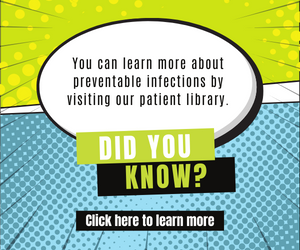Protect youth through prevention

A proactive, preventive approach to adolescence can keep teens healthy. Several vaccines are important for today’s youth – this issue will focus on prevention of human papillomavirus (HPV) and meningitis infections.
HPV and meningococcal meningitis share some important characteristics –adolescents and young adults are at greatest risk of infection; the germs responsible are easily spread through close contact, and can be carried unknowingly by people who have no symptoms.
Human papillomavirus (HPV)
Approximately 75% of sexually active Canadians will have at least one HPV infection in their lifetime, most often between the ages of 15 and 24.1 Some strains of HPV carry an increased risk of cancer of the cervix, the second most common cancer in Canadian women between 20 and 45 years of age.2
HPV is spread through any skin-on-skin sexual contact. Condoms reduce risk, but do not provide complete protection. Pap tests can detect changes to cells in the cervix before cancer has time to develop.
The most effective way to avoid HPV infection is vaccination, ideally (but not necessarily) before a person becomes sexually active. The vaccine is approved for females from ages 9 – 45 and males from ages 9 – 26. The most up-to-date HPV vaccine protects against 7 types of the virus that have been linked with 90% of cervical cancers.1
Protect yourself – Learn more at HPVinfo.ca or Sexandu.ca for reader-friendly, fact-based information about HPV for teens. Or visit the SOGC.org for the latest on HPV vaccine safety.
Meningococcal meningitis
One in five healthy teens and adults in Canada are carriers of the meningococcal bacteria, which is spread during close contact with saliva; through coughing, kissing, or sharing items such as cigarettes, lipstick, cutlery, or the mouthpieces on musical instruments.3
Invasive meningococcal disease (IMD) affects an average of 200 Canadians per year, sometimes with devastating consequences. About 10% of those who develop IMD die, often within 24-48 hours. And one in three survivors will be permanently disabled due to brain damage, deafness, or loss of limbs. 4
Immunization is our first and best solution – after the routine meningococcal vaccine (type C) healthy infants receive at 12 months of age, teens and young adults should receive a booster shot that contains type C or types C, A, Y, and W-135.4 Teens at higher risk of meningitis may also wish to ask their physician about the MenB vaccine, since rates of meningococcal serogroup B have increased in recent years.5
Protect your family through awareness – learn more about meningitis by visiting the following sites:
Brought to you by Vaccines411.ca – know where to go for your vaccinations.
This information should not be used as a substitute for the medical care and advice of your doctor. There may be variations in treatment that your physician may recommend based on individual facts and circumstances.
Read more Vaccines411® Articles 
Sources
Note: the hyperlinks that direct to other sites are not continuously updated. It is possible that some links become untraceable over time. Thank you.
- The human papillomavirus (HPV) is the most common sexually transmitted infection in the world today.
http://www.sexandu.ca/stis/hpv/ - JOINT POSITION STATEMENT: Safety of Gardasil HPV vaccine
https://g-o-c.org/wp-content/uploads/2015/01/GOCPosStmt_2015Feb_HPVVacSafGardasil_EN.pdf - Meningococcus (Neisseria meningitis)
http://www.meningitis.ca/en/MeningococcalDisease - Invasive Meningococcal Disease
http://www.phac-aspc.gc.ca/im/vpd-mev/meningococcal-eng.php - The Recommended Use of the Multicomponent Meningococcal B (4CMenB) Vaccine in Canada
http://www.phac-aspc.gc.ca/naci-ccni/mening-4cmenb-exec-resum-eng.php#toc_4b



